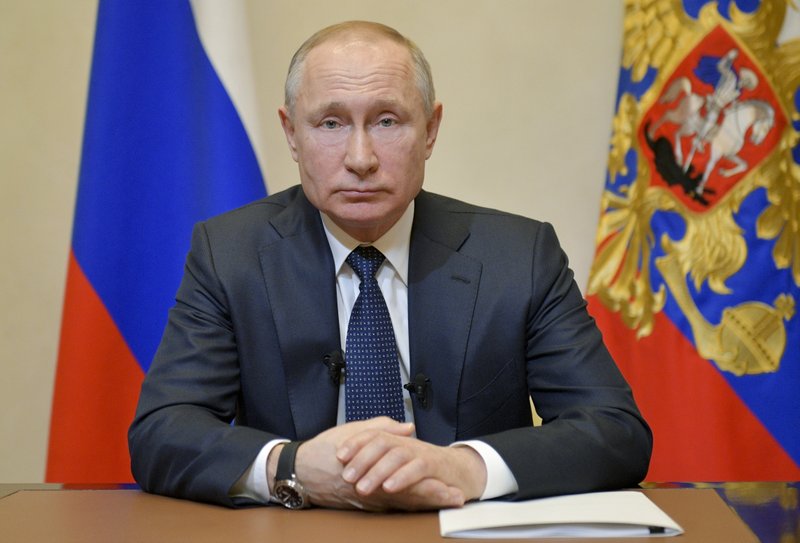
President Vladimir Putin thanked Russians on Thursday for voting in favour of controversial amendments to the constitution that could extend his grip on power, as the opposition and Western leaders voiced criticism over suspected poll violations.
Russia’s Central Elections Commission announced early Thursday that nearly 78 percent of voters had cast their ballot in favour of the changes to the constitution that could see Putin, 67, remain in power until 2036.
Putin, in televised remarks, warned that modern Russia was still in the process of being formed. He said: “Thank you very much for your support and trust. We need internal stability and time to strengthen the country and its institutions. “Very little time has passed since the break-up of the Soviet Union,” Putin said.
Russians began voting last week on the package of constitutional changes proposed by Putin earlier this year, including a reset of presidential term limits allowing him to run twice again after his current six-year term ends in 2024.
Other amendments strengthen presidential and parliamentary powers, enshrine traditional values including an effective ban on gay marriage and guarantee better minimum wages and pensions.
The Kremlin pulled out all the stops to bolster the turnout and makeshift polling stations cropped up across the country, including some in buses, tents and on street benches which were ridiculed on social media.
Results showing a sweeping majority in favour of the reforms drew criticism in the United States, which raised concerns over efforts to “manipulate” the ballot, while the EU called on Russia to probe reports of voting “irregularities”. Leading Kremlin critic Alexei Navalny also condemned the poll, tweeting that it set “a record in faking votes” and the result had “nothing in common with people’s views.”
— A ‘triumph’ —
The vote, which was originally scheduled for April 22, had to be postponed after health officials reported a spike in coronavirus cases that overwhelmed hospitals and saw Russia become the world’s most infected country after the United States and Brazil. Putin, already in power for two decades, rescheduled the vote to be held a week after massive World War II commemorations throughout the country that analysts said were important to the Kremlin to stir up patriotic sentiment ahead of the ballot.
The president’s approval ratings have plummeted to historic lows of 59 percent in recent months, partly over the government’s early handling of the coronavirus pandemic but also over longstanding economic malaise.
Kremlin spokesman Dmitry Peskov hailed the result as a “triumph” and described the ballot as a “referendum on trust” in the Russian president. The result was seen by many as a foregone conclusion, however, and copies of the new constitution were already on sale in bookshops weeks ahead of the vote.
— ‘Unprecedented violations’ —
Authorities claimed that only the autonomous Nenets region in the Russian Arctic came out against the reforms, with 55.25 percent of voters opposing the changes. The result there was seen as a protest vote over plans to merge Nenets with the neighbouring Arkhangelsk region, officials said. Russia’s two houses of parliament previously approved the amendments but Putin said they would only take effect if supported by a majority of voters.
To lure crowds to the ballot, the last day of voting was declared a national holiday and prizes — including apartments, cars and cash — were on offer to voters. The Golos election monitoring group said Thursday it had received more than 2,100 complaints over possible violations, including reports of employees being forced to vote. The organisation described the vote as “unprecedented” in terms of violations, saying it would go down in history as an attack on the sovereignty of the people. US State Department spokeswoman Morgan Ortagus said Washington was “troubled” by the Russian government’s efforts to manipulate the election and reports of voter coercion.
The European Union also condemned the vote citing “allegations of irregularities” and called on Russia to investigate the “serious” claims. Election commission chief Ella Pamfilova rebuffed the criticisms, saying that “there is no doubt that the vote is valid and legitimate”.
(AFP)






